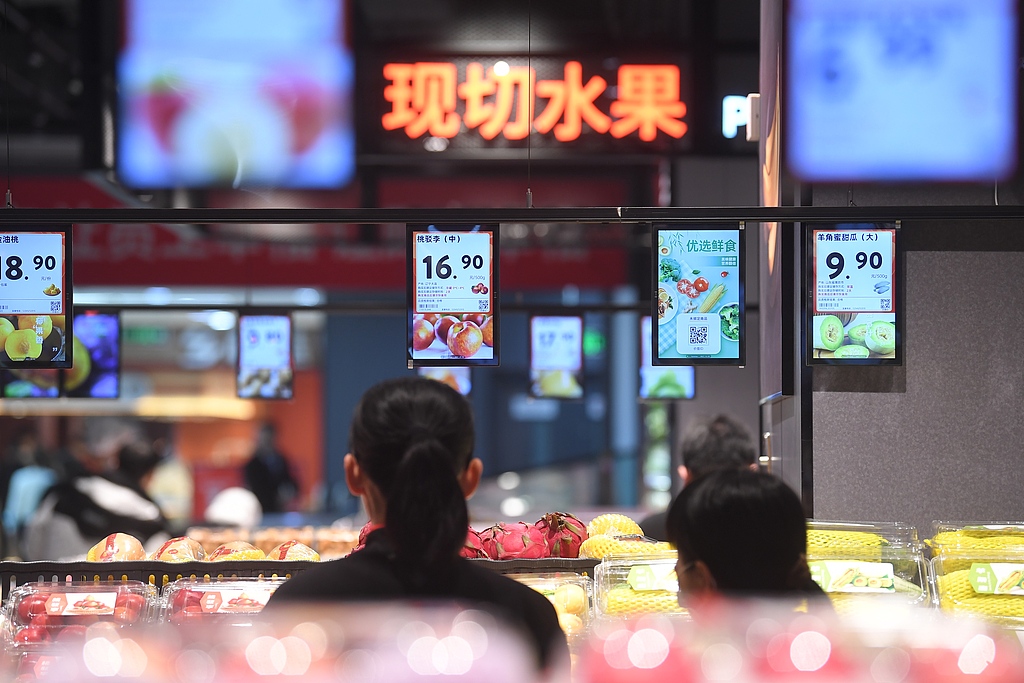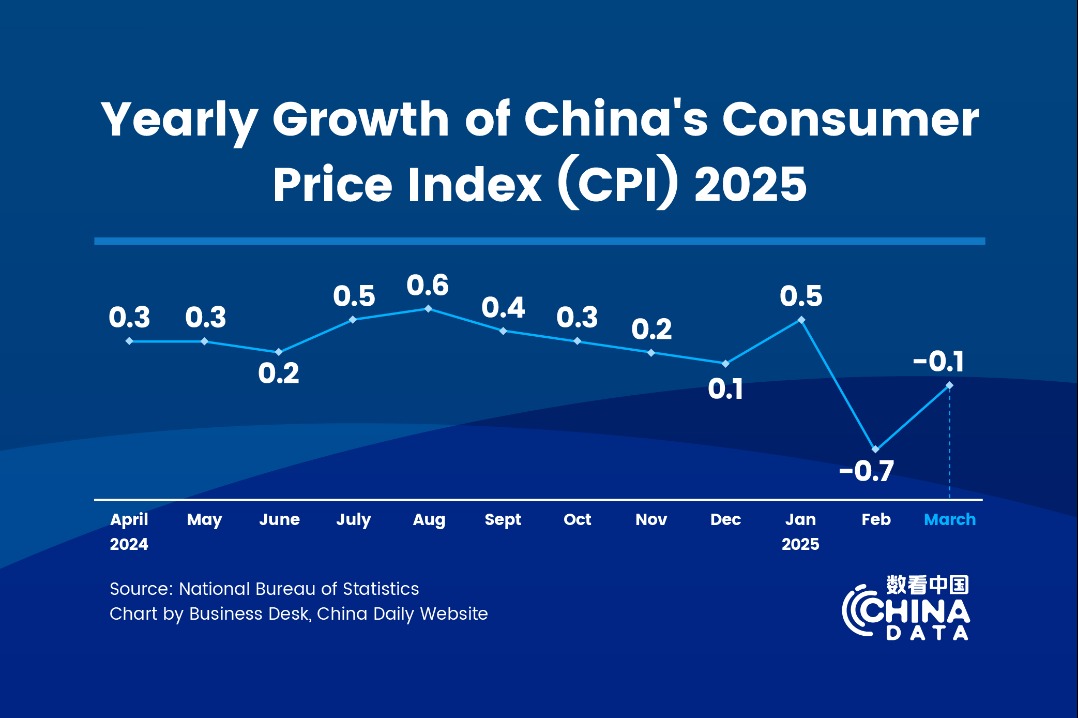Yonghui doing its part to help tariff-hit firms


In response to new rounds of United States' tariff hikes and ongoing global supply chain disruptions, Chinese retailer Yonghui Superstores launched a "green channel" initiative aimed at supporting domestic supply chain enterprises grappling with stockpiles caused by export challenges.
The initiative, unveiled on Monday, includes fast-track product placement within 15 days, targeted promotional support and collaborative product development to help manufacturers shift their focus to the domestic market.
The move comes as part of Yonghui's broader strategy to strengthen its supply chain partnerships and tap into China's high-quality manufacturing capabilities.
Yonghui said it serves a dual role as both a consumer-facing retail platform and a strategic partner to Chinese manufacturers.
Yonghui is currently in talks with over 70 supply chain enterprises, including those that supply products to Costco and Sam's Club of Walmart Inc in the US market.
The retailer focuses on deepening collaboration with core suppliers, prioritizing major product categories and pursuing long-term growth. As part of this effort, Yonghui aims to incubate 100 products, each generating over 100 million yuan ($13.62 million) in annual sales within the next three years.
Among the first group of companies signing up for the new move is Jiangsu Huateng Personal Care Products Co Ltd, a dental hygiene supplier based in Jiangsu province.
Huateng has been a long-standing supplier for Walmart Inc, providing a range of dental products, including flossing items for the retailer's private brands. The company exports to the US, Europe and South America, with an annual revenue of 200 million yuan.
However, the company has recently encountered significant challenges as orders from the US have hit a wall due to the increasing tariffs imposed on Chinese products.
Mu Longsheng, the company's head, said, "A few weeks ago, we hoped to share some of the tariff burden just to keep the factories running and our workers employed."
Now, with the imposition of the new tariffs, Mu said as a company in an industry with razor-thin margins, the impact would result in a tenfold decrease in profits.
Mu said that Chinese manufacturers like Huateng maintain a higher production capacity for dental care supplies compared to competitors in India and Turkiye.
China is a key supplier for retailers in the US.
During Walmart's investment community meeting on Wednesday, the company said more than two-thirds of what they sell in the US is made, grown, or assembled in the US.
John David Rainey, CFO of Walmart Inc, added, "The (remaining) third that we import comes from all over the world, but China and Mexico are the most significant."
However, to adapt to the shifting market dynamics, Huateng has pivoted toward collaborations with domestic retailers, such as Yonghui, to develop dental tools and products tailored for Chinese consumers. At the same time, the company is actively exploring other international markets to offset the losses.
Some of Mu's peers have relocated their factories to Southeast Asian countries to evade previous tariffs.
"Some of my friends are now worried about the uncertainties that come with such moves," he said. "This situation has reinforced our decision to keep our factories in China."
With government support, retailers have assisted exporters in expanding their domestic market shares. This initiative aims to help struggling enterprises reduce their inventories and stimulate consumption potential with high-quality products intended for export, said Jason Yu, general manager of CTR Market Research.
"By doing so, it uses certainty in the domestic market to address the uncertainties in the external environment," Yu said.
In addition to Yonghui, other domestic retailers are fostering supportive business environments. On April 3, e-commerce platform Pinduoduo announced a plan to invest in resources such as funding and online traffic over the next three years.
This initiative aims to enhance the e-commerce ecosystem, enable the transformation and upgrading of platform suppliers and merchants, and fully build a win-win business ecosystem for users, merchants and the platform.




































